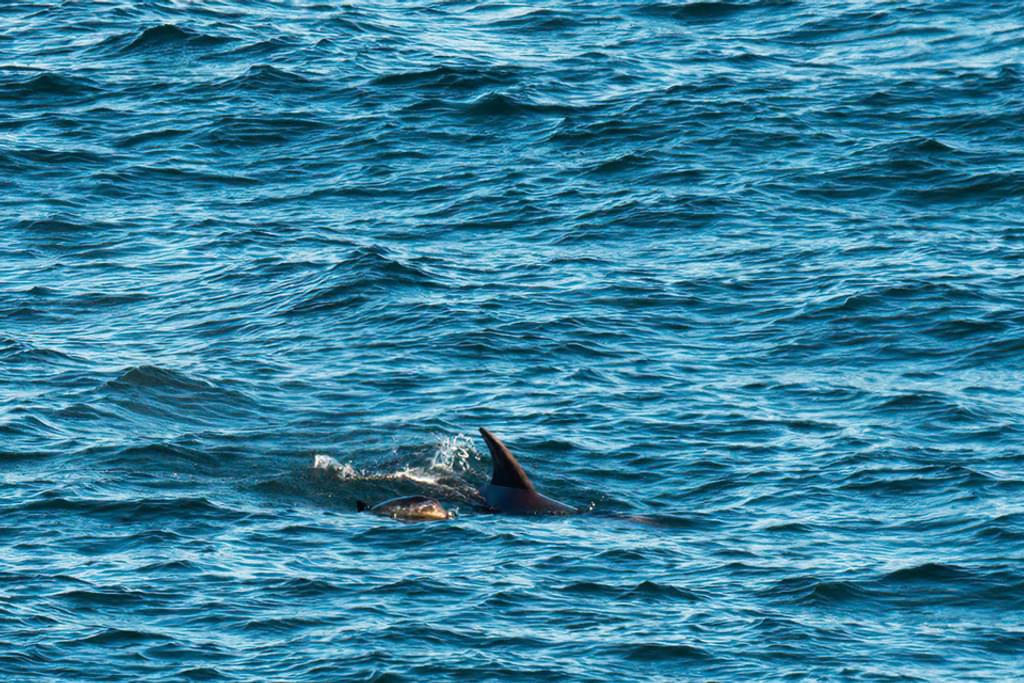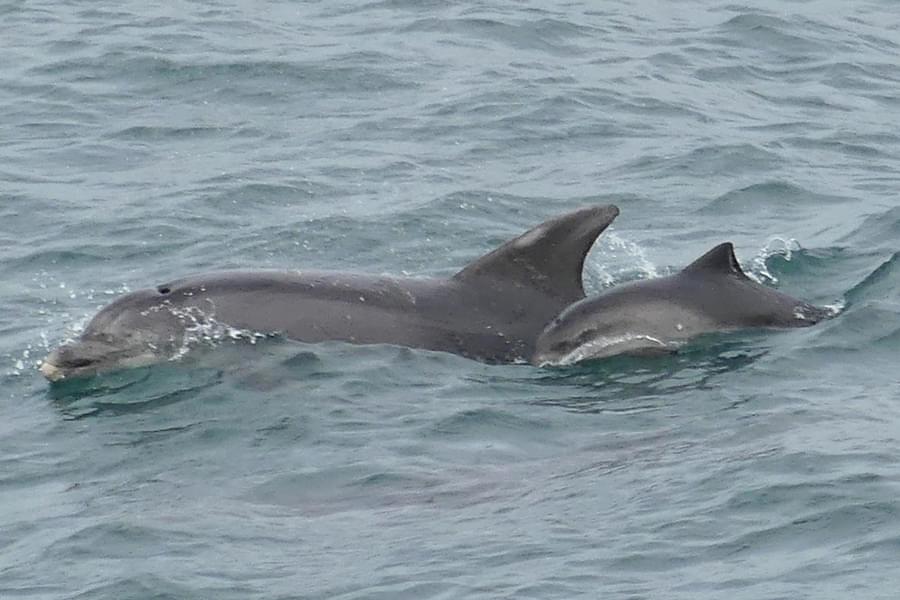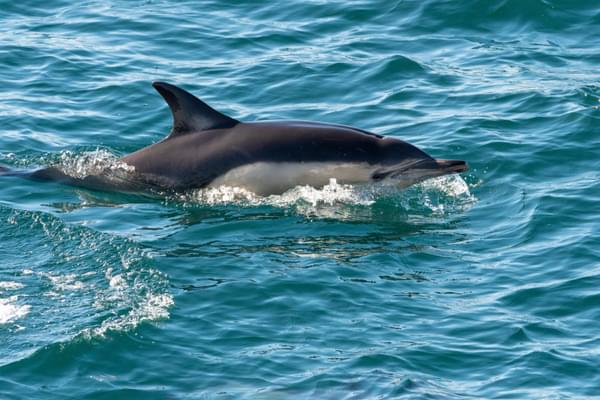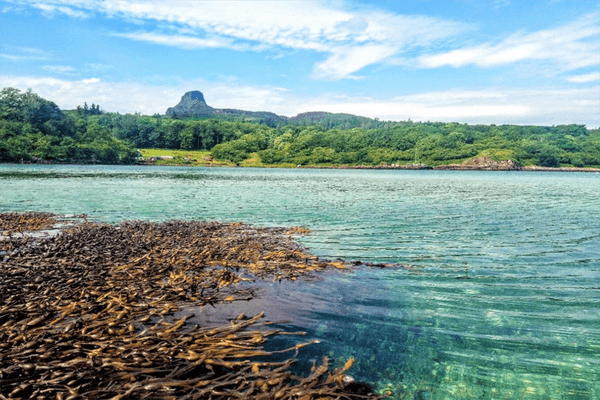Wildlife watchers in Cornwall are being urged to dust off their binoculars and help ORCA by looking out for a very unusual marine pairing sighted off the North Cornish coast.
Wildlife watchers in Cornwall are being urged to dust off their binoculars and help whale and dolphin charity ORCA by looking out for a very unusual marine pairing sighted off the North Cornish coast.
In the past two weeks, there have been two separate sightings of bottlenose dolphins swimming and interacting with a lone harbour porpoise, who seems to have contentedly joined up with them.
While not exactly sworn enemies, bottlenose dolphins often aggressively attack their smaller harbour porpoise cousins, playing with them like a football, launching them into the air and eventually killing them. However in this case, the small porpoise and the larger dolphins seem to have paired up, enjoying acrobatic games and swimming between Newquay and St Ives. The porpoise was even copying the dolphin’s familiar forward breaching leaps, which is very unusual.
Terry Carne is a longstanding ORCA OceanWatcher and Marine Mammal Surveyor. He was conducting his daily ORCA OceanWatchers survey from shore when he witnessed this very rare pairing in Newquay on March 2nd.
Terry said; “I saw two bottlenose dolphins coming in towards land, which were the first I’d seen at Newquay for a long time. As they got a little nearer, I thought there was a third, all breaching, but realised that one was in fact a porpoise.”
Just six days later, the same 2 dolphins were spotted 35 miles away near St Ives, again with a smaller porpoise buddy tagging along. Although it cannot be certain that this was the same Newquay porpoise, the ongoing interaction would seem to be more than a coincidence.
Lucy Babey, Head of Science & Conservation at ORCA said; “The pairing up of these two different species is highly unusual. While they share the same habitat, porpoises tend to steer well clear of dolphins, so to see them playing and sticking together over such a long period is a really rare event.”
"Typical interactions between the two species are that the dolphins indulge in very aggressive behaviour towards porpoises, much like a cat will play with a mouse, and this will often lead to the porpoise being killed. But what was observed here was a possible mutual play, with the porpoise even mimicking the dolphin's behaviours."
“We recently learned about an orca named Sædís in west Iceland that had seemingly adopted a new-born long-finned pilot whale, even though orcas and pilot whales also chase and antagonise each other. There has been a lot of speculation around whether this was aggressive adoption or if the calf had been abandoned, but it does show the empathy that animals have for different species”.
ORCA is appealing to marine wildlife enthusiasts in Cornwall to download its OceanWatchers app and to look out for the trio and see if they have stayed together.
The ORCA OceanWatchers programme is designed so that everyone can collect data about whales and dolphins in a flexible way, enabling even more people to become an integral part of ORCA’s conservation work. What’s really valuable is that it provides an even greater opportunity to actively monitor important habitats. That way ORCA can continue to inform and shape policy and help create and maintain precious protected areas in UK and European waters.
The ORCA OceanWatchers online training course, along with a bespoke app, enables everyone to collect data about whales, dolphins and porpoises. And that means anywhere that you can see the sea - whether that’s from a local beach, on holiday at the coast, scanning the seas from a cruise ship, travelling via ferry or from your own boat.




